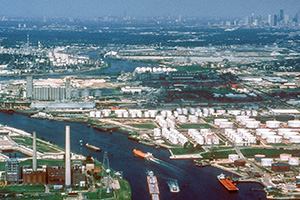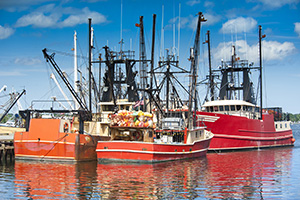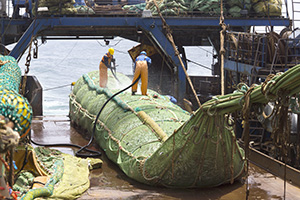Houston Ship Channel Accident Lawyer

The channel of water that created the Houston Ship Channel was built by widening and dredging the Buffalo Bayou and the Upper Galveston Bay. The ship channel is part of the Port of Houston and has numerous terminals and berthing locations along its 45+ mile channel. The Houston Ship Channel connects the world to the mega petrochemical docks of Exxon Mobil Baytown Complex, Valero, Oxid, Kinder Morgan, Shell, Lyondell, Citgo, Phillips Chevron, Sunoco, Agrifos, SunEdison, BP, the Deer Park Chemical Complex, and major cargo container terminals of Barbour’s Cut and the Bayport Terminal.
While most of the tonnage going through the ship channel and upper Galveston Bay is petrochemical related, the channel is also an important hub for offloading foreign vehicles and cargo containers. With this incredibly large amount of traffic combined with the narrow nature of the channel itself, this lends itself to potential ship to ship, barge to barge and ship to shore accidents and injuries. While Houston and Harris County have been largely spared of any catastrophic accidents, there have been many tugboat – barge and ship accidents with terminals while docking. Additionally, due to the nature of the work loading and unloading cargo and containers from ships and the heavy barge traffic there comes the serious injuries related to numerous tug boat and barge collisions, crane accidents, lifting accidents, ship and barge fires, fuel and chemical leaks, fires and explosions and potentially deadly exposures to benzene and other cancer causing chemicals throughout the entire channel.
If a worker is injured while on a towboat, ship, barge, or vessel in the ship channel or in Galveston Bay, that worker would be entitled to the benefits afforded to him or her under the Jones Act. This includes daily maintenance and cure (medical care) and other legal damages. If the injured workers injuries were caused by a third party other than their Jones Act employer, then a third party lawsuit may be filed against the ship owner, product manufacturer, the crane operator or owner and/or other negligent parties under General Maritime Laws, negligence or other legal remedies available based on the location and facts of the injury.
Houston Ship Channel Injury Lawyer
If you were hurt on a ship, barge, vessel or a dock or terminal along the Houston Ship Channel, we are here to help you. With the many types of confusing maritime laws whether it be the General Maritime Law, the Jones Act, Longshoremen and Harbor Workers Compensation Act or straight Worker’s Comp, individuals should talk to an experienced maritime injury lawyer and find out what laws apply and have their lawyer help maximize the legal damages available for them. Mr. Willis is a Board Certified Personal Injury Trial Lawyer in Texas with over 30 years of experience in handling accident cases on canals, ship channels, bays, chemical plants, docks, waterways and rivers all over the nation. Call us 24/7 for a Free Consultation at 1-800-883-9858


.jpg)